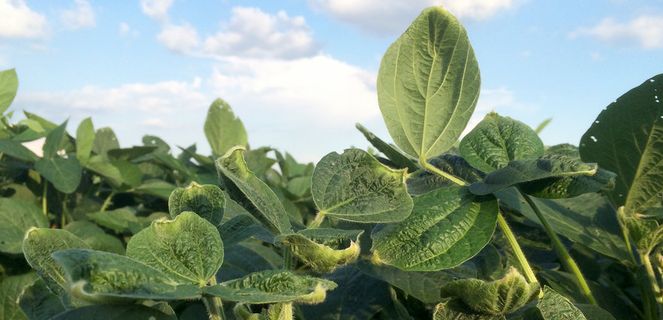Dicamba use could be shelved for farmers in 2024
by February 7, 2024 3:35 pm 958 views

Farmers may not be able to use the dicamba herbicide during the 2024 growing season. A federal court in Arizona on Tuesday (Feb. 6) blocked the use of three dicamba products – XtendiMax, Engenia and Tavium.
It’s not certain if or when the decision will be appealed and its unknown what the timeline for when the products will be removed, said Harrison Pittman, the director of the National Agricultural Law Center. Pittman told attendees at the Arkansas State University Agribusiness Conference on Wednesday (Feb. 7) morning he was surprised how quickly the court ruled.
“When I woke up yesterday, I would have told you that you are a long way off on a decision,” he said. “When I got off my flight they had issued a decision. It stunned me. They ruled that the EPA didn’t properly register the products. They are ordering it to be vacated from the market.”
Dicamba is a proven crop weed killer, but if it can drift from one field to another field and cause damage to crops that have not been genetically modified for dicamba. Arkansas officials have had to navigate a delicate playing field for years when it comes to the use of dicamba, especially in Northeast Arkansas where it is used on soybean and cotton crops among others.
The court stated in its ruling the decision will effect producers during the upcoming growing season, but the products in question were improperly registered in 2020.
“The court accepts that there are substantial benefits from OTT (over-the-top) dicamba for DT (dicamba-tolerant) crops (cotton and soybean) for weed control, especially for controlling weeds that are resistant to other herbicides or when there is no herbicide resistance, OTT dicamba affords flexibility in herbicide choices for rotating or mixing herbicides to manage weed resistance,” the court said in its ruling per Progressive Farmer.
Dicamba has been banned in several states. Dicamba has been used as a herbicide for more than 50 years to manage 200 broadleaf weeds. Hundreds of lawsuits have been filed in connection with the use of the herbicide nationwide during the last decade.
Dicamba has been highly controversial in its application since the Arkansas Plant Board received about 1,000 damage complaints in May 2017, primarily in Northeast Arkansas. Drift from the application of dicamba was suspected to be damaging other crops.
Pittman said he understands the complex issues that surround the use of products like dicamba in the agriculture industry. But he told attendees at the conference there are not a lot of other solutions.
Weeds are becoming more and more of a problem for producers and it’s not going away anytime soon.
“We don’t have a lot of options when it comes to what technologies we can use to fight this problem,” he said.
